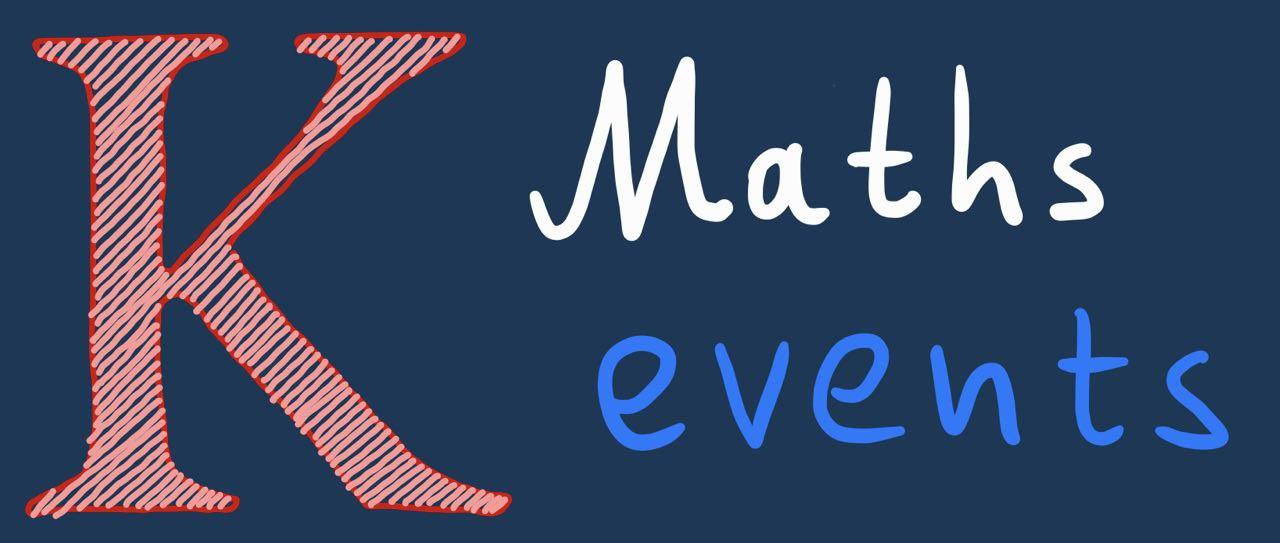Week 14.10.2024 – 20.10.2024
Monday (14 Oct)
TP Lonti: Infrared aspects of gravity in asymptotically flat spacetimes
Regular Seminar Ana-Maria Raclariu (King's College London)
| at: 10:30 - 10:31 KCL Strand room: LIMS abstract: | These lectures will review recent developments surrounding the infrared sector of gravity in (3+1)-dimensional asymptotically flat spacetimes (AFS). In the first part of the course we will introduce soft theorems which govern the low-energy scattering of massless particles such as photons and gravitons. We will explain how these are related to classical observables known as memory effects and discuss their application to computing infrared-finite collider observables and gravitational waveforms. In the second part, we will introduce the notion of asymptotic or large-gauge symmetries and use it to derive the infinite-dimensional asymptotic symmetry algebra of (3+1)-dimensional AFS, also known as the BMS algebra. We will show that the conservation laws associated with these symmetries are equivalent to the Weinberg soft graviton theorem. Time-permitting, we will discuss some implications of these ideas for non-AdS holography. Keywords: |
PR KCL Probability Seminar: The Power of Choice versus Noise
regular seminar Thomas Sauerwald (University of Cambridge)
| at: 14:00 - 15:00 KCL, Strand room: S3.32 abstract: | In the balanced allocation problem we wish to allocate m balls (jobs) into n bins (servers) by allowing each ball to choose from some bins sampled uniformly at random. The goal is to maintain a small gap between the maximum load and average load.
|
FM Strong Duality in Risk-Constrained Nonconvex Functional Programming
regular seminar Spyridon Pougkakiotis (King's College London)
| at: 15:00 - 16:00 KCL, Strand room: s5.20 abstract: | In this talk, we will discuss a novel result establishing that risk-constrained functional optimization problems with general integrable nonconvex instantaneous reward/constraint functions exhibit strong duality, regardless of nonconvexity.
|
Tuesday (15 Oct)
GE From deformations of the Farey graph to faithfulness of Burau representations
regular seminar Sophie Morier-Genoud (Université Reims Champagne Ardenne)
| at: 15:00 - 16:30 KCL, Strand room: STRAND BLDG S4.29 abstract: | The talk will start from the elementary fact that positive rational numbers can be expanded as finite continued fractions with positive integer coefficients. The positive integer coefficients have combinatorial interpretations in the sense that ‘’they count something’’. I will present combinatorial interpretations based on the Farey graph. Introducing a formal parameter q, I will then make a deformations of the objects and refine the countings. This will bring notions of q-rationals, q-continued fractions, q-SL(2,Z). I will explain the constructions and give the main properties of all these q-analogs. Finally, I will connect this theory to the Burau representation of the braid group B3, and give a partial answer to the question of faithfulness of the complex specialisations of this representation. Keywords: |
Wednesday (16 Oct)
TP Spectroscopy of near extremal black holes in EFT extensions of GR
Triangular Seminar Marina David (KU Leuven)
| at: 15:15 - 15:16 KCL Strand room: S-2.23 abstract: | In this talk, I will show how one can study gravitational perturbations from the near-horizon region of extremal and near-extremal rotating black holes in a general higher-derivative extension of Einstein gravity. I will explain how the near-horizon Teukolsky equation is modified via a correction to the angular separation constant. The near-horizon region also provides constraints on the form of the full modified Teukolsky radial equation, which serve as a stepping stone towards the study of quasinormal modes of near-extremal black holes. In the second part of the talk, I will present a new family of EFT, motivated by preserving two fundamental properties of GR: gravitational waves are non-birefringent, and black hole quasinormal modes are isospectral. This leads to a novel class of EFT extensions, which remarkably, coincides with predictions from string theory and implies a previously unknown feature of string theory effective actions. Keywords: |
TP The entropy of Holographic CFTs at large charge and angular momentum
Triangular Seminar Shiraz Minwalla (TIFR, Mumbai)
| at: 16:45 - 16:46 KCL Strand room: S-2.23 abstract: | Black holes in AdS$_d$ ($d \geq 4$) are always unstable at large angular momentum and sometimes unstable at large charge. We present proposals for the end points of these instabilities. Our constructions suggest new entropy formulae for ${\cal N}=4$ Yang Mills theory for a range of charges around extremality, and in particular for those that saturate the BPS bound. Keywords: |
Thursday (17 Oct)
AN Homogenisation for the Robin problem on manifolds and flexibility of optimal Schrödinger potentials
regular seminar Chia-Chun Lo (KCL)
| at: 11:00 - 12:00 KCL, Strand room: S5.20 abstract: | By introducing progressively finer perturbations to a spectral problem in a controlled manner — an example of a procedure known as homogenisation — one hopes to uncover properties of the problem by exhibiting it as the limit of a family of other ones. In this work, we employ this strategy to show that the spectrum of a Schrödinger eigenvalue problem posed on a Riemannian manifold M can be approached by that of a family of Robin eigenvalue problems posed on domains in M with many small perforations.
|
Friday (18 Oct)
TP Minimal Areas from Entangled Matrices
journal club Svesko Andy (KCL)
| at: 13:15 - 14:30 KCL, Strand room: Norfolk Building 342N abstract:Keywords: | |
